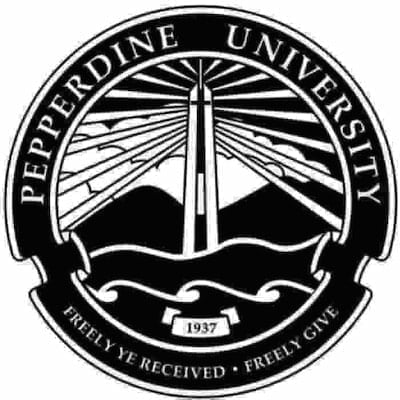As Malibu continues to monitor the impact of COVID-19, the transition from in-person to at-home learning was a smooth adjustment for Pepperdine University.
In response to rising concerns over the spread of the novel coronavirus, as of March 17, the remainder of the university’s semester will be completed online. Departments are working remotely to reduce on-campus student, faculty and staff population.
Pepperdine’s emergency operations committee has implemented a series of interim protocols as it manages the university’s response to COVID-19.
Co-Chair of EOC and Infectious Disease Task Force Phil Phillips said 25 emails have been sent out and EOC has been holding two formal 90-minute meetings daily to keep the campus updated and informed. Among that information is the news that at least 12 Pepperdine students have tested positive for the disease as of Tuesday, March 31, including three who attended classes in Malibu in the spring semester.
Seaver College, the undergraduate college located on the Malibu campus, began online instruction immediately.
University President Jim Gash held a virtual briefing for Pepperdine students and faculty on March 16 and plans to host a meeting every Monday to maintain modified operations during the pandemic. Graduation, summer and international programs, and credit/no credit classes are still up in the air.
Pepperdine’s student newspaper The Graphic reported on the virtual meeting and said there are 2,672 classes being held online as of March 23, 130 internet protocol classes and 223 graduate classes.
Pepperdine journalism advisor Dr. Elizabeth Smith said classes have adjusted to remote learning before with the Woolsey Fire and felt as prepared as they could be.
“A lot of our faculty and administrators have had experience doing this before; of course, it was a different situation in a shorter amount of time, but I think a lot of us felt at least equipped to make a quick transition,” Smith said. “I think the university did a pretty good job of giving us resources and support and backup, and from my personal experience, the students have been really, really great, just willing and have a good attitude about it. Of course, it’s not ideal, but they get it; they see what’s happening.”
The new transition is perhaps most disruptive for seniors and graduating students who are worrying about grades and graduation. Smith said she is staying connected with her students daily throughout the remainder of the semester.
“I’m holding synchronous class lessons, but also I am in communication with my students almost daily, through some form or another,” Smith said. “So, I think just really staying connected with them, making it clear that we’re really trying to help them get the most out of the semester.”
Last week, Pepperdine’s IT department sent an email to students, faculty and staff informing the campus of “Zoombombing,” where unwanted participants enter a zoom meeting and screen-share, speak, and/or write using images, gestures, or language that are explicit or offensive.
“Behavior of this nature from any community member is prohibited by the university, and those using Zoom video conferencing are encouraged to safeguard their online meetings from these practices,” the email stated.
The university encourages all students, faculty and staff to follow the guidance and direction of local authorities.
“As the university community continues to adjust to this environment, the university recognizes some community members may be experiencing ongoing feelings of uncertainty, anxiety or isolation,” the website says. “The counseling center provides free, confidential emotional/psychological support to all Pepperdine students and will continue to do so using an online or telehealth format and/or make local referrals when appropriate.”

